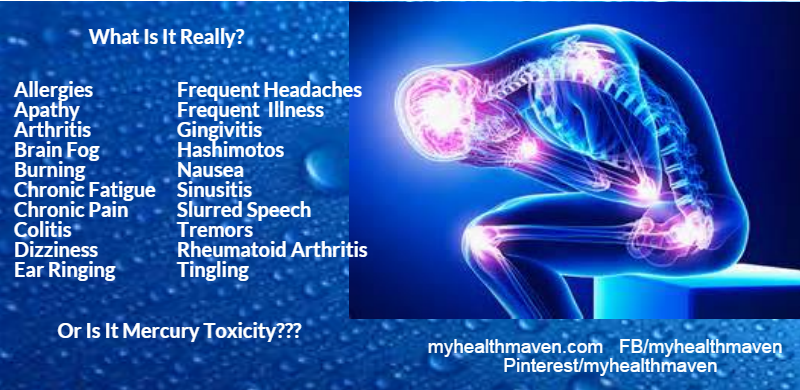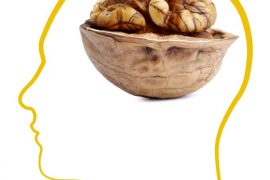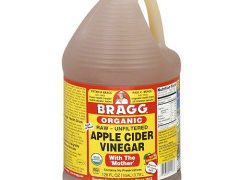We all deal with stress, whether it’s from long work hours, a busy schedule at home or the stress of dealing with chronic health issues. If it’s a short lived situation, it’s not a problem, but long term stress can have a powerful impact on your health.
The adrenal glands
The purpose of the adrenal glands is to help your body deal with various types of stress, whether it’s from an injury, illness, relationships or work. Your endurance, resilience and energy are dependent on the healthy functioning of your adrenal glands. The adrenal glands command hormones which also impact your overall health, including the stress hormones, such as cortisol, aldosterone and androgens. Although the adrenals are no larger than a walnut and weigh less than a grape, these tiny pyramid shaped glands that sit on top of your kidneys affect the function of every tissue, organ and gland in your body. (1)
Do you have adrenal fatigue?
Chronic stress is taxing on the adrenal glands and can lead them to become under responsive, this is also known as adrenal fatigue. (2) This under responsiveness means less hormone production and can lead to numerous negative symptoms such as:
| Morning fatigue | Depression | Food cravings (sweet, salt & fat) |
| Lack of energy | Decreased sex drive | Hormone imbalance |
| Weight gain | Brain fog | Autoimmune conditions |
| Chronic fatigue | Insulin resistance | Inability to handle stress |
3 Stages of Stress Response (which can lead to adrenal fatigue)
The body has three levels or stages of dealing with stress. They are the alarm, resistance and exhaustion phase. (3) Let’s take a brief look at them here:
Alarm Phase – This is more commonly known as the flight or fight response. This is the body’s instinctive answer to a challenging or dangerous situation. In this phase a number of biochemical and physical changes occur that put your body on full alert.
Resistance Phase – During the resistance phase your body will continue to fight the stressor long after the flight or fight response has worn off. Typical symptoms include lower sex drive, more frequent illness and feeling tired on a regular basis. This stage can continue for months or years.
Exhaustion Phase – In this phase there can be a complete collapse of body function or collapse of specific organs or systems. The body is no longer being able to mount proper stress response, it is simply too depleted. Typical symptoms include lack of sex drive, extreme tiredness, depression, weight gain, anxiety and apathy.
Common causes of adrenal fatigue
While there can be numerous factors that can contribute to adrenal fatigue, some of the more common include:
| Consistent stress | Poor sleep | Chronic pain |
| Food sensitivities | Surgery | Rheumatoid arthritis |
| Poor diet | Reliance on caffeine/energy drinks | Exposure to pollution /toxins |
Dealing with stress and adrenal fatigue
There are many ways to manage stress, such as making sure you get adequate sleep, eating whole foods, learning to meditate, avoiding processed foods and appropriate exercise (low to moderate intensity is a good option as high intensity can actually be taxing to the body for those with adrenal fatigue). While these are important factors to recovery, adaptogens are also of critical importance in recovering from adrenal fatigue.
What are Adaptogens?
Adaptogens are natural substances that work with a person’s body and help them adapt; most notably, to stress. Adaptogens have been used in both ancient Chinese and Ayurvedic medicines, and are usually plant based herbal medicines. Adaptogens are a natural ally in dealing with persistent stress and fatigue because they work with regulating important hormones. Adaptogens offer several other health benefits, such as:
-Helping to support your body’s ability to adapt to stressful situations more efficiently.
-Supporting some of the physical and chemical effects of stress
-Helping the body to mount a healthy response to stress.
-Adaptogens help you rebound from exhaustion phase and or support the resistance phase
Adaptogenic herbs
Adaptogenic herbs help to lower stress responses in the body by lowering cortisol levels. (4, 5, 6). While the role of adaptogens is to help the body to adapt to stress, adaptogens all work a little differently. Some like ginseng or rhodiola work to energize the body, others like astragalus fortify the immune system against viral illness, while maca is beneficial for the libido. Since all adaptogens have their own unique properties it’s important to find the one that’s right for you. (This is where a discussion with your practitioner comes in handy). Adaptogens help to strengthen the body over time, so you may need to take them for a few weeks before you notice a difference.
Some common adaptogens include:
Ginsengs (Asisan panax variety) -This herb from the araliaceae family is used to help the body to adapt to environmental influences and stressors. It has also been noted to improve cognitive function and memory. (7)
Ashwaganda-This herb from the nightshade family is a great option for those who are exhausted or highly stressed. This is not a good option during pregnancy. (8)
Rhodiola –This adaptogen from the stone crop family is another wonderful option for anyone who is dealing with exhaustion or depression. It has proven effective at increasing energy and endurance. (9)
Licorice–This adaptogen from the legume family is well known for its benefits for sore throats, but it has numerous benefits as well, including helping with UTI’s and exhaustion from adrenal fatigue. Discuss with your doctor before taking if you have high blood pressure and/or are taking medication for high blood pressure. (10)
Holy basil –This herb from the mint family is also known as tulsi, tulasi or sacred basil. This adaptogen has many studies to back its success in improving the body’s response to stress. (11)
Eleuthero – This herb shows benefits for chronic fatigue and other illnesses. Discuss this option with your doctor as it can also affect high blood pressure. (12)
How to take adaptogens
Adaptogens are available in many forms including teas, supplements and tinctures.
Full adrenal recovery can take anywhere from 6-9 months for minor adrenal fatigue, and up to 2 years for severe adrenal fatigue. So the length of time they are taken and the dosage are best discussed with your practitioner, as they will vary based on your medical history, how long you have been dealing with fatigue and any pre-existing conditions.
In addition some herbs can be used for extended times while others would need to rotated or followed with a rest period. This is why it is best discussed with your practitioner.
As always look for certified organic products whenever possible. If using a tincture check the concentration of the extraction to verify potency, if using capsule look for a standardized extract. Your practitioner should offer recommendations for brands and potencies based on your health needs.
In addition, some simple ways to include adaptogens are to add them to your diet. Consider the following:
Have a cup of herbal tea such as licorice, Tulsi tea (Holy Basil)
Add adaptogenic herbs to your soups or stews (remove them when the soup/ stew is done)
Add adaptogenic herbs such as maca or mushroom powder to your smoothie or dairy free milk drinks.
In conclusion
Adrenal fatigue is considered a modern stress syndrome. Many people are living with chronic fatigue and may simply attribute it to a hectic lifestyle. While slowing down and adjusting your schedule may help, adrenal recovery also requires a commitment to healthy living and supplemental help when appropriate.
It’s important to remember that this condition doesn’t develop overnight. Adrenal fatigue can take months or years to show consistent symptoms in the body. As mentioned previously, full adrenal recovery can take anywhere from 6-9 months for minor adrenal fatigue, and up to 2 years for severe adrenal fatigue.
Be patient. Make a commitment to your health. Find a practitioner who can work with you to develop a protocol based on your needs and medical history.
References
- Overview of Adrenal Function – Endocrine and Metabolic Disorders. (n.d.). Retrieved March 19, 2018, from http://www.merckmanuals.com/en-ca/professional/endocrine-and-metabolic-disorders/adrenal-disorders/overview-of-adrenal-function
- Li-Ng, M., & Kennedy, L. (2012, October 01). Adrenal insufficiency. Retrieved March 19, 2018, from https://www.ncbi.nlm.nih.gov/pubmed/22806629
- Sinclair, A. (n.d.). The 3 Phases of Stress : Know What Phase of Stress You’re In. Retrieved March 19, 2018, from http://wellnessatwork.com.au/3-phases-of-stress/
- Panossian, A., Wikman, G., Kaur, P., & Asea, A. (2009, June). Adaptogens exert a stress-protective effect by modulation of expression of molecular chaperones. Retrieved March 19, 2018, from https://www.ncbi.nlm.nih.gov/pubmed/19188053
- Gupta, P., Yadav, D. K., Siripurapu, K. B., Palit, G., & Maurya, R. (2007, September). Constituents of Ocimum sanctum with antistress activity. Retrieved March 19, 2018, from https://www.ncbi.nlm.nih.gov/pubmed/17850106
- Panossian, A., Wikman, G., & Sarris, J. (2010, June). Rosenroot (Rhodiola rosea): traditional use, chemical composition, pharmacology and clinical efficacy. Retrieved March 19, 2018, from https://www.ncbi.nlm.nih.gov/pubmed/20378318
- K., P., K., L., G., W., & B. (2017, April 29). Panax ginseng – Scientific Review on Usage, Dosage, Side Effects. Retrieved March 19, 2018, from https://examine.com/supplements/panax-ginseng/
- K., P., K., L., G., W., & B. (2018, March 16). Ashwagandha: Scientific review on benefits, side effects, dosage, and more. Retrieved March 19, 2018, from https://examine.com/supplements/ashwagandha/
- K., P., K., L., G., W., & B. (2018, February 14). Rhodiola Rosea: Scientific review on usage, dosage, side effects. Retrieved March 19, 2018, from https://examine.com/supplements/rhodiola-rosea/
- K., P., K., L., G., W., & B. (2017, April 29). Licorice – Scientific Review on Usage, Dosage, Side Effects. Retrieved March 19, 2018, from https://examine.com/supplements/licorice/
- K., P., K., L., G., W., & B. (2017, April 29). Holy Basil – Scientific Review on Usage, Dosage, Side Effects. Retrieved March 19, 2018, from https://examine.com/supplements/holy-basil/
- K., P., K., L., G., W., & B. (2017, April 29). Eleutherococcus senticosus – Scientific Review on Usage, Dosage, Side Effects. Retrieved March 19, 2018, from https://examine.com/supplements/eleutherococcus-senticosus/
This article was originally posted at The Hearty Soul








